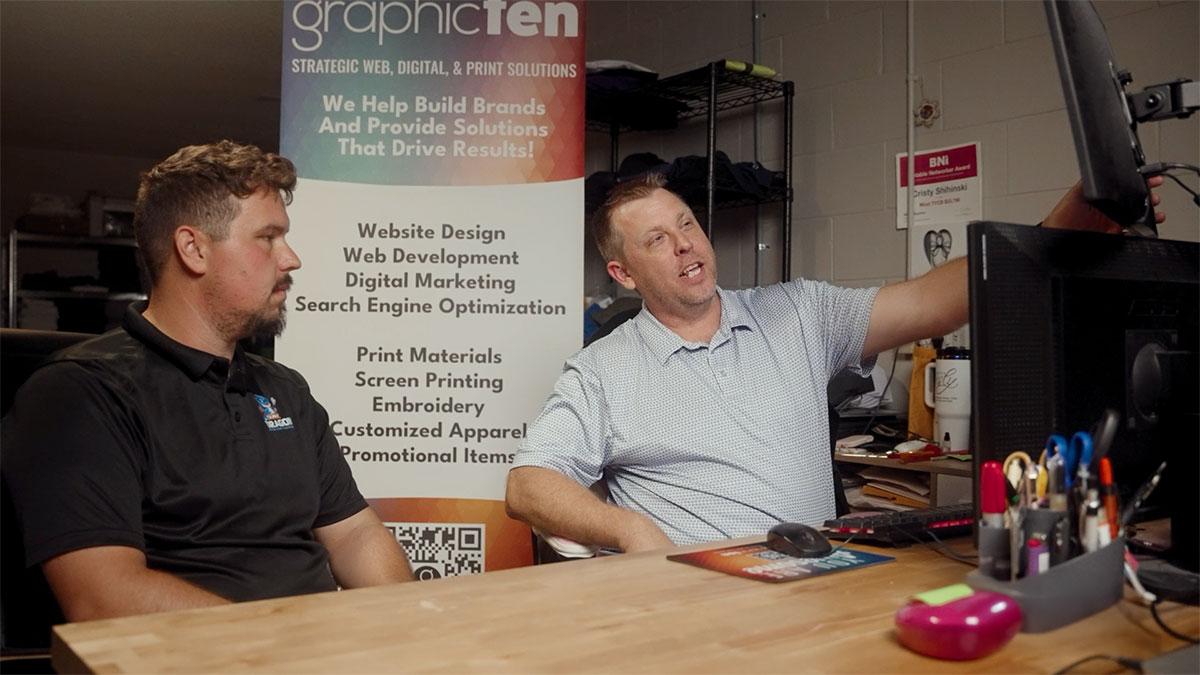7 Strategies to Boost Your Online Presence in 2025
In 2025, Search Engine Optimization (SEO) remains a critical component of digital marketing, essential for enhancing online visibility and attracting potential customers. As search engines evolve, so do the strategies required to maintain and improve search rankings.

This article explores the latest SEO strategies to help businesses stay competitive and visible online.
Key Takeaways
- SEO is Still Essential: Search engine optimization remains critical in 2025 for driving organic traffic, building trust, and improving online visibility. Businesses that prioritize SEO gain a competitive advantage in a crowded digital space.
- Adapt to Evolving Trends: Key changes, such as AI integration, voice search optimization, Core Web Vitals, and sustainability practices, require businesses to update their strategies to meet new ranking criteria.
- Implement Proven Strategies: Focusing on search intent, creating long-form and evergreen content, optimizing for local search, and leveraging video SEO are all effective ways to improve rankings and user engagement.
- Use the Right Tools: Tools like Google Search Console, SEMrush, Ahrefs, and Lighthouse provide invaluable insights and help streamline SEO processes, ensuring your strategies are data-driven and efficient.
- Stay Educated: SEO is constantly changing. Regularly consulting reputable learning resources and keeping up with algorithm updates ensures your strategies remain effective and relevant.
By understanding and implementing these insights, businesses can boost their online presence, improve user experiences, and achieve sustainable growth through SEO.
Why SEO Remains Essential in 2025
Search Engine Optimization (SEO) continues to play a vital role in helping businesses succeed online. As the internet becomes increasingly competitive, having a strong SEO strategy is no longer optional—it’s a necessity. Here’s why SEO remains indispensable in 2025:
The Majority of Online Traffic Comes from Search Engines
Search engines drive a significant portion of website traffic, with Google alone accounting for over 91% of global search engine traffic. Without effective SEO, businesses risk losing visibility in this critical channel.
Organic Traffic Builds Trust
Users tend to trust organic search results more than paid advertisements. Ranking highly in search results positions your business as an authority in your industry. This trust can translate into higher engagement, more leads, and better conversion rates.
SEO Offers Long-Term Results
Unlike paid ads, which stop delivering traffic once the campaign ends, SEO investments yield long-term benefits. A well-optimized website continues to attract organic traffic over time, offering a higher return on investment (ROI).
User Behavior Is Shifting
With the rise of voice search, mobile browsing, and AI-driven search tools, user behavior is evolving. SEO ensures your website adapts to these changes by targeting the platforms and formats users prefer.
Local Search is More Important Than Ever
For small and medium-sized businesses, local SEO is essential. With features like “near me” searches and Google Maps integrations, businesses can connect with customers in their immediate area. According to BrightLocal, 78% of mobile local searches lead to an offline purchase.
Search Algorithms Are Constantly Evolving
Search engines like Google frequently update their algorithms to provide users with the most relevant and reliable results. Staying on top of these changes with a strong SEO strategy ensures your website remains visible and competitive.
SEO is not just about improving rankings—it’s about understanding your audience, delivering value, and building trust. In 2025, businesses that prioritize SEO are better positioned to reach their goals and stand out in a crowded online space.
Key Changes in SEO for 2025
Search engine optimization is constantly evolving, driven by technological advancements and shifts in user behavior. In 2025, several key changes are shaping the way businesses approach SEO, making it crucial to adapt strategies to remain effective.
AI Integration in Search
Artificial intelligence (AI) is becoming a central component of search engine algorithms. Tools like Google’s RankBrain and BERT analyze user intent and context to deliver more accurate search results. This shift means that SEO must focus on creating content that aligns with natural language and semantic search.
- What This Means: Content should prioritize conversational language and answer questions comprehensively.
- Action Step: Use AI-powered tools to analyze search intent and optimize content for complex queries.
Voice Search is Gaining Momentum
The popularity of voice-activated devices like Alexa, Google Assistant, and Siri is changing the way people search online. Voice queries tend to be more conversational and longer than text-based searches.
- What This Means: Businesses need to optimize for voice search by targeting long-tail keywords and question-based phrases.
- Action Step: Include FAQs and natural language in content to capture voice search traffic.
Core Web Vitals Take Center Stage
Google’s Core Web Vitals, which measure page speed, interactivity, and visual stability, remain critical ranking factors. Websites that fail to meet these benchmarks risk losing visibility.
- What This Means: Technical SEO is more important than ever, with a focus on performance optimization.
- Action Step: Audit your website’s Core Web Vitals using tools like Google PageSpeed Insights and address areas for improvement.
E-E-A-T (Experience, Expertise, Authoritativeness, and Trustworthiness)
Search engines are placing greater emphasis on the credibility of content. Websites that demonstrate E-E-A-T through well-researched, authoritative content are more likely to rank higher.
- What This Means: Content needs to come from credible sources and provide real value to users.
- Action Step: Include author bios, references, and backlinks from reputable sites to establish authority.
The Rise of Zero-Click Searches
Zero-click searches, where users find answers directly on the search results page without clicking a link, are more common. Featured snippets, knowledge panels, and local packs dominate search results.
- What This Means: Businesses must optimize for these rich results to remain visible.
- Action Step: Structure content to answer specific questions concisely and mark it up with schema for featured snippets.
Sustainability is Becoming a Ranking Factor
With growing environmental awareness, sustainable web practices are gaining traction. Lightweight coding, green hosting, and energy-efficient websites are now factors that search engines consider.
- What This Means: Websites need to balance performance with eco-friendly practices.
- Action Step: Optimize images, reduce unnecessary code, and use sustainable hosting providers.
By understanding and adapting to these changes, businesses can future-proof their SEO strategies and maintain a competitive edge in search rankings.
Top 7 SEO Strategies for 2025
Adapting to the latest SEO changes requires implementing effective strategies that align with current search engine algorithms and user expectations. Here are the most impactful approaches to improve your online presence in 2025:
1. Focus on Search Intent
Understanding why users are searching for specific information is critical. Search intent can be categorized into informational, navigational, transactional, and commercial investigation queries.
How to Implement:
- Conduct keyword research to identify user intent behind queries.
- Structure your content to address the specific intent (e.g., detailed guides for informational searches or product pages for transactional ones).
- Use tools like SEMrush or Ahrefs to analyze search intent.
2. Optimize for Voice Search
Voice search requires a conversational and question-focused approach. Since voice queries are often longer and natural-sounding, your content should reflect this style.
How to Implement:
- Incorporate long-tail keywords and phrases.
- Create FAQ sections to address common questions.
- Optimize for local SEO by including location-specific terms.
3. Leverage Long-Form and Evergreen Content
Search engines favor in-depth content that provides comprehensive answers to user queries. Long-form content also generates more backlinks and encourages visitors to stay on your site longer.
How to Implement:
- Write articles of 1,500 words or more that cover topics in detail.
- Use headers, bullet points, and visuals to make content easily scannable.
- Regularly update evergreen content to keep it relevant.
4. Prioritize Local SEO
Local SEO remains a crucial strategy, especially for small and medium-sized businesses. Optimizing for local searches helps you connect with customers in your area.
How to Implement:
- Claim and optimize your Google Business Profile.
- Encourage customers to leave reviews on Google and Yelp.
- Add location-based keywords to your website and content.
5. Invest in Video SEO
Video content continues to grow in popularity and is a valuable addition to your SEO strategy. Videos can rank on both YouTube and Google, increasing your reach.
How to Implement:
- Use descriptive, keyword-rich titles and meta descriptions for your videos.
- Add transcripts to make video content accessible and indexable by search engines.
- Include videos on your website to boost engagement and dwell time.
6. Build High-Quality Backlinks
Backlinks remain a cornerstone of SEO, but the focus is on quality over quantity. Earning links from authoritative websites improves your site’s credibility.
How to Implement:
- Publish original research or in-depth guides that other sites will want to reference.
- Reach out to industry influencers or partners for guest posting opportunities.
- Use internal linking to strengthen the structure of your website.
7. Optimize for Core Web Vitals
Core Web Vitals, including loading speed, interactivity, and visual stability, are key ranking factors in 2025.
How to Implement:
- Use lazy loading for images and videos to improve page load speed.
- Minimize JavaScript and CSS to enhance performance.
- Regularly test your site with tools like PageSpeed Insights.
These strategies are designed to align with the latest SEO changes, ensuring your website not only ranks higher but also delivers a seamless and valuable experience for users.
Tools and Resources for 2025 SEO Success
Implementing effective SEO strategies requires the right tools and resources to track performance, optimize content, and stay ahead of algorithm changes. Below is a curated list of tools and resources to help you succeed in 2025.
Keyword Research Tools
Understanding what your audience is searching for is critical to targeting the right keywords.
- Google Keyword Planner: A free tool for discovering search volume and keyword ideas.
- SEMrush: Offers in-depth keyword analysis, competitive research, and keyword difficulty scores.
- AnswerThePublic: Visualizes search queries to help you understand user intent and identify long-tail keywords.
On-Page SEO Tools
These tools help optimize individual pages for search engines and users.
- Yoast SEO (WordPress Plugin): Simplifies SEO tasks like adding meta descriptions, managing schema, and optimizing readability.
- Screaming Frog SEO Spider: Audits your site to find broken links, duplicate content, and more.
- Surfer SEO: Analyzes top-ranking pages and provides recommendations for optimizing content.
Technical SEO Tools
These tools ensure your website is optimized for search engine crawling and performance.
- Google Search Console: Monitors site performance, indexing, and search traffic.
- GTmetrix: Provides insights into your website’s speed and performance with actionable suggestions.
- PageSpeed Insight: An open-source tool for auditing page performance and user experience.
Analytics Tools
Tracking and analyzing data is essential to measure the success of your SEO strategies.
- Google Analytics 4: Offers advanced tracking capabilities, such as user paths and engagement metrics.
- Hotjar: Tracks user behavior with heatmaps, click tracking, and session recordings.
Backlink Analysis Tools
Managing your backlink profile is key to improving authority and rankings.
- Ahrefs: Tracks backlinks, identifies link-building opportunities, and monitors competitors.
- Moz Link Explorer: Provides domain authority metrics and backlink insights.
AI-Powered SEO Tools
Leverage artificial intelligence to automate and enhance SEO tasks.
- Clearscope: Optimizes content based on AI-driven recommendations for target keywords and readability.
- MarketMuse: Suggests topics and content ideas to improve SEO strategy based on AI analysis.
Learning Resources
Stay updated with the latest SEO trends and best practices through reliable sources.
- Google’s SEO Starter Guide: A comprehensive introduction to SEO for beginners.
- Search Engine Journal: Covers news, strategies, and tips from industry experts.
- Neil Patel Blog: Offers actionable advice and SEO tutorials.
Equipping yourself with these tools and resources makes it easier to implement, monitor, and refine your SEO strategies for better results.
Conclusion
SEO continues to be a cornerstone of digital marketing in 2025, driving organic traffic, building brand trust, and connecting businesses with their target audiences. By staying informed about key changes such as AI integration, voice search optimization, and Core Web Vitals, businesses can adapt their strategies to maintain a strong online presence.
Implementing proven tactics like prioritizing search intent, creating high-quality content, and leveraging the right tools ensures your SEO efforts deliver measurable results. Regular updates, testing, and a focus on providing value to your audience are essential for long-term success.
Search engines will continue to evolve, but businesses that embrace innovation and remain proactive with their SEO strategies will thrive. If you’re ready to optimize your website and achieve better results, reach out to our team for expert guidance and support.


